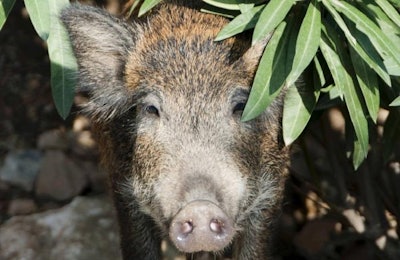
African swine fever was the main topic of a meeting of the Ministers of Agriculture and Chief Veterinary Officers or their representatives from nations affected by the African swine fever outbreak in Eastern Europe, reported Rosselkhoznadzor, the Russian federal service for Veterinary and Phytosanitary Surveillance.
The meeting of officials from Estonia, Slovakia, Romania, Belarus, Finland, Moldova, the Russian Federation and Ukraine took place in Warsaw, Poland, on October 28, 2016. The meeting was chaired by Vytenis Andriukaitis, EU Commissioner for Health and Food Safety.
African swine fever spreading in Eastern Europe
The Russian Federation was represented by Nikita Lebedev, Advisor to Head of Rosselkhoznadzor of the Russian Federation, and Artyom Metlin, Deputy Director of FGBI (ARRIAH) subordinate to the Rosselkhoznadzor.
In their presentations, the participants reported on how the African swine fever situation had evolved in their countries. The representatives of Moldova expressed deep concern over the introduction of African swine fever to their territories from the Ukraine, as well as lack of financial support for implementation of anti-epizootic measures to the full extent.
In late September, two outbreaks of African swine fever were confirmed in Moldova and reported to the World Organization for Animal Health (OIE). The outbreaks involved a total of 13 pigs. All of the animals either died or were put down. OIE classified the reports as resolved on October 4.
The Russian delegation reported on the African swine fever situation in Russia and expressed concern over lack of transparency in some countries, low effectiveness of anti-epizootic measures adopted in these countries and inefficiency of the GF-TADs-related tools in this sphere.
Disagreement between Russia and EU
In their presentations, experts of EFSA and the European Commission downplayed the role of wild boars in spreading African swine fever, meanwhile giving recommendations to gradually cut the populations of wild boars in risk zones. In particular, it was mentioned more than once that density of wild boar populations did not affect the speed of disease spread.
However, the Russian side strongly objected to this opinion and was supported by the representatives of some other countries including Poland. According to Rosselkhoznadzor, the main aim of these expert opinions is the intention of European countries to make amendments to the international legislation and by leveling down the role of wild boars in African swine fever spread to make the recognition of ASF free status of the countries possible regardless of the disease presence in wild fauna. Nevertheless, owing to persistent discussion initiated by the Russian side, these proposals were not included in the final recommendations developed at the working group meeting.

















